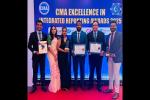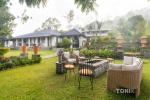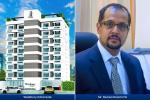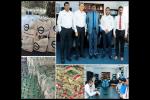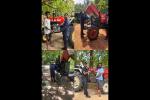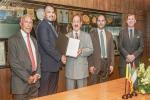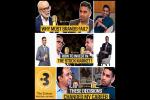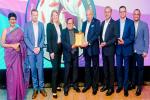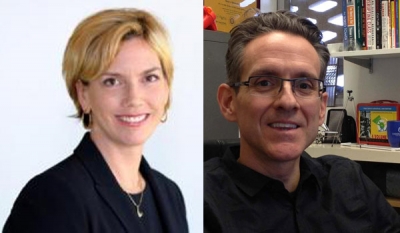From ancient palaces and temples to complex irrigation and aqueduct systems, it is clear that ancient Sri Lankans had developed a sophisticated understanding of engineering, art, agriculture, and many other vital disciplines necessary for a civilization to develop and prosper.
Ultimately, it is the synthesis of such knowledge that is the true cultural hallmark of Sri Lanka’s ancient past and the common consensus today is that knowledge, skills and expertise are what will help drive the nation towards an equally bright future.
However the journey ahead is challenging and while Sri Lankans have demonstrated tremendous resourcefulness and tenacity in advancing development, systemic bottlenecks have hampered the nation’s ability to develop.
Today, the lack of skills and expertise is often cited as one of the most significant limitations to growth, particularly in relation to young Sri Lankans entering the workforce for the first time.
The urgency of resolving this growing skills gap is further exacerbated by Sri Lanka’s demographic dynamics.
By 2041, over 25% of the country’s population is projected to reach the age of 60, while youth unemployment currently hovers at around 70% for those between the ages of 15-29.
These are trends which do not bode well for the Sri Lankan economy however, while the country remains polarized on many different issues, there is common consensus on the fact that Sri Lanka’s next chapter of growth will hinge on successful outcomes in education and skills development.
Seeking to build capacity locally with a view to empowering Sri Lankans to resolve these challenges for themselves, the USAID-funded YouLead! programme is collaborating with a wide array of partner organisations – Government and Non-Governmental bodies, leading private sector companies and several local and international academic institutions – in order to bolster the country’s education systems and re-align them to help young Sri Lankans become more competitive in the labor market.
The role of education in the age of information
Prominent among YouLead’s partners in this endeavor is Arizona State University (ASU).
Having topped the US News and World Report list of Most Innovative Schools in the United States for three years in a row – ahead of Stanford, MIT and numerous other internationally renowned institutions - ASU is now leveraging its considerable expertise to help teachers and trainers across the country’s vocational training institutions to shape a common framework and understanding of education.
Leading the ASU team in Sri Lanka is Ann Nielsen, Associate Director of the Center for Advanced Studies in Global Education (CASGE) in the Mary Lou Fulton Teachers College at ASU and Samuel DiGangi, Associate Professor of Special Education in the Division of Education Leadership and Innovation of Mary Lou Fulton Teachers College at ASU and affiliated faculty with the Center for Advanced Studies in Global Education.
Both are specialists in the field of pedagogy – the method and practice of teaching itself – and believe that concerted, home-grown reforms aimed at refining the approach that educators take in the classroom will be vital in bridging the growing skills gap.
Having recently completed their second trip to the island during which the duo worked extensively with educators in vocational institutes across the island, they were eager to share some preliminary observations and insights into the challenges and opportunities in Sri Lanka’s vocational training sector.
“Since arriving, we have met and shared experiences with some truly phenomenal Sri Lankan educators. All of the people that we worked with showed remarkable knowledge in their fields and were passionate and sincere about their motivation to improve the lives of their students.
“Our goal from has therefore been to leverage a process of cooperative collaboration to work with these educators to further refine their instructional techniques and delivery while improving their ability to monitor and evaluate student performance in a manner that promotes the best learning outcomes,” Nielsen explained.
Fundamental to this process according to DiGangi, is the need for a common definition of pedagogical concepts fitted to Sri Lankan requirements that in turn form the foundation of a common, standardized approach to teaching.
“Once we have all Sri Lankan educators working to commonly agreed-upon framework, we are able to ensure that they are able to replicate teaching best practices and extend them to cover the whole island.
This will empower educators to build up their students to a professional level so that when they complete their training, they are already equipped with the skills necessary to have a strong impact in the workforce.
“The training programmes that we are developing are the first step in this journey.
Through this process, we hope to consolidate their expert knowledge and content, and help them to draw connections to key pedagogical concepts.
In many cases, these concepts are already embedded in their teaching methods and our job is to help to clearly define them so that the content and approach is consistent irrespective of where the teaching takes place,” he stated.
A systematic, data-driven approach to education
The Sri Lankan education system is frequently described as outdated; often better at producing graduates who are skilled in taking tests and memorizing, rather than ones capable of retaining and actively applying knowledge to solve real world problems.
However DiGangi notes that such issues are not unique to Sri Lanka, and that all over the world, there is a vibrant debate raging as to what constitutes an effective education system in the first place.
“This is certainly a hot topic in the United States, especially in the field of comparative and international education and the feasibility and reliability of global learning metrics.
While it is important to have these high-level debates to determine the ultimate direction these systems must take, it is much more difficult to influence this direction from the top-down.
“Meanwhile, educators are still focused on the immediate problems: what do I teach today and how do I teach it? That is a question which at some point, each individual educator needs to answer for themselves and their students.
We believe that we can provide vital support to them by leading them to formative assessments that generate the information necessary to take such decisions,”
A unique component of the YouLead project is that it takes a systematic approach to refining education outcomes with Nielsen and DiGangi emphasizing that there are no quick-fixes or one-size-fits-all solutions to education, noting that a significant focus of their training was therefore related to mastery of learning, and the establishment of effective feedback mechanisms between teachers and students.
By generating precise information on the performance and needs of individual students, they believe that teachers can build co-operative learning techniques that will produce students capable of not just surviving but also thriving in the 21st century workforce.
“In practice, it is often very difficult to separate these overlapping concepts and the training in many ways has been a process of analyzing and taking apart this figurative puzzle to examine it from different perspectives.
We evaluate different teaching techniques to identify what works, and what does not, and change our approach accordingly.
“It is therefore vital to be science-based in our approach. Even in advanced economies, it is often the case that approaches to teaching are not informed by data and this is an area which ASU has built strong expertise.
We are a bit unique in this regard since the use of data and research is not actually common practice in many parts of the education sector; even though should be.
Basing our teaching goals, techniques and outcomes in data and facts, is the best way to build effective, scalable solutions to the skills gap to ensure the highest quality of education regardless of location, socioeconomic status or any other related factors.” Nielsen reiterated.
Home-grown solutions to bridge the skills gap
Given that the mandate of the YouLead programme spans a 4 year period, the work on enhancing opportunities and improving the employability of young Sri Lankans through skills development is only just beginning.
Moving forward, the US$ 12 million programme is working to directly improve the lives of over 100,000 young Sri Lankans by introducing 57 new or improved curricula, developed with the private sector and prioritized in high-growth sectors.
“At present Sri Lanka faces significant challenges arising out of the mismatch between the type of skills that the school system produces against those needed in high-growth areas of the private sector.
But we believe that it is why it is more important than ever to identify ‘bright-spots’ in education.
We must focus on our strengths and how they can be expanded and emulated in a way that provides the most benefit to the student,” DiGangi noted.
Elaborating on one such example, he cited a recent training session for artisans entering the gem and jewelry industry during which students were given lessons across multiple administrative aspects of a the business in addition to training aimed at honing their craft.
“These students were already quite skilled but it was such a great initiative on the part of that educator to also teach them about the administrative components of a business - from acquisition of materials to budgeting, and marketing.
These students were essentially being provided with integrated training to create beautiful new products, while also being inspired to adopt an entrepreneurial mindset.
This is the kind of powerful example that needs to be evaluated and emulated.” Nielsen asserted.
Looming large over these discussions is the impending wave of technology enabled reform to not just what is taught, but how it is taught.
“There are a lot of important and timely questions being raised as to the reliability of global learning metrics particularly with the emergence of Big Data technology.
Today there is a greater opportunity than ever before to utilize data-driven research to enhance learning outcomes.
Ultimately however, we must realize that all of this will boil down to how we approach education in the classroom.
“The changes we make must be based on provable facts however, all of this will only be possible through the implementation of standards and approaches to education and teaching that are common across the island.
It should make no difference whether you learn your skills in Jaffna or Colombo or Galle.
Therefore it is very encouraging to see a real sense of urgency from the educators we’ve worked with.
They are eager to improve and to implement these improvements into their range of teaching approaches.
We believe this is the best indicator of a strong start.” Nielsen stated.
While Nielsen and DiGangi have since returned to the United States, their engagement with the YouLead programme is set to continue over the next 4 years.
Over the coming months, they will be in regular virtual communication with educators and programme partners in Sri Lanka as they collect and evidence on what they have been able to implement in their respective classrooms.
However, the end-game for ASU is to collaboratively design a self-sustaining, self-improving education system in Sri Lanka.
In the process, Nielsen and DiGangi were keen to emphasize that two-way learning is also embedded in ASU’s involvement in the YouLead programme.
“Ultimately, we are also here to learn from these educators and co-develop future training components that we can apply locally, but also take back and even apply into our own teaching at Arizona State University both directly, and through our distance learning programmes,” he concluded.
Photo caption : Ann Nielsen & Samual DiGangi
